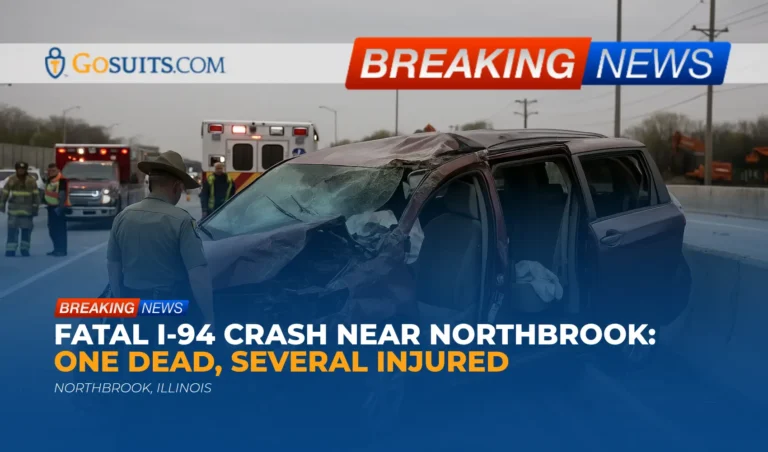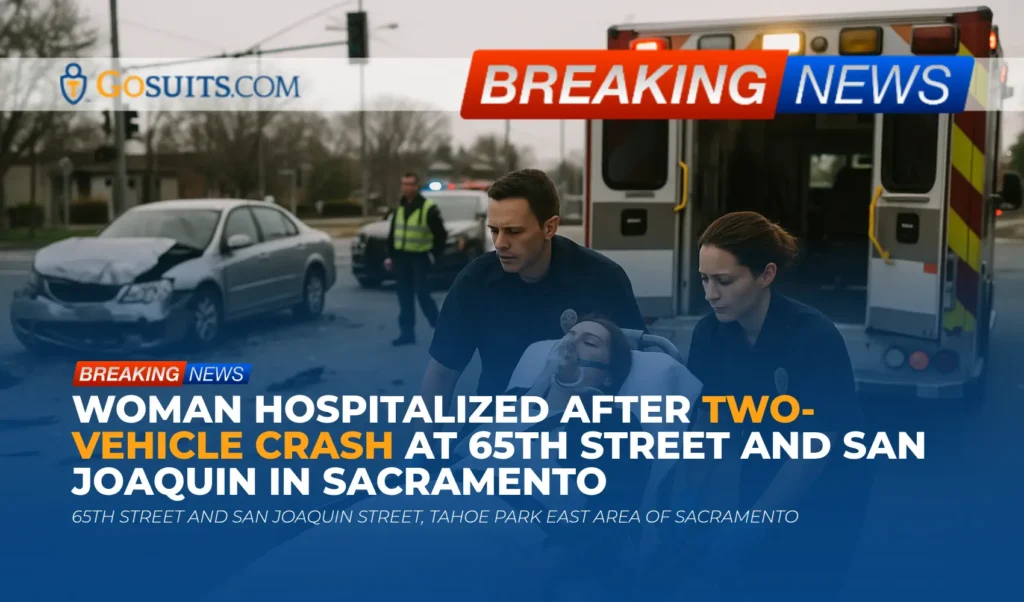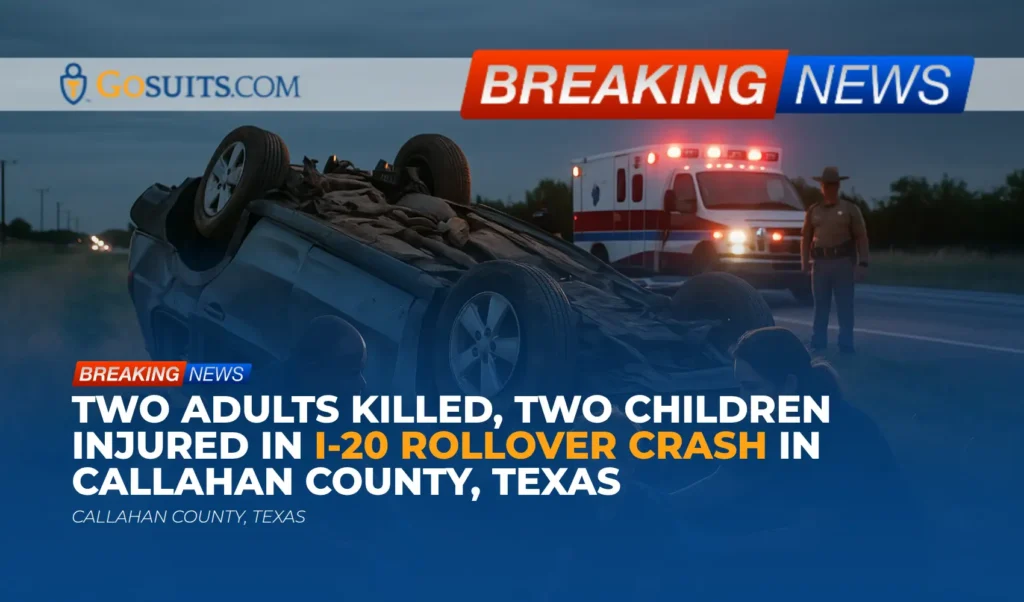A single-vehicle crash on Interstate 94 (Edens Expressway) near Northbrook, Illinois, has resulted in one fatality and injuries to several others. The incident occurred Wednesday morning and led to a prolonged closure of northbound lanes as authorities investigated. This article summarizes the known facts of the crash and offers a general legal perspective on the potential implications of such incidents.
Incident Overview
According to reports, the crash occurred at approximately 10:42 a.m. on Wednesday. Illinois State Police and the Northbrook Fire Department responded to the scene, where a Toyota Sienna minivan was found to have struck a concrete barrier in a construction zone. Preliminary investigations suggest the driver lost control of the vehicle, leading to the collision.
One passenger, Jianzhong Tan, 60, of Chicago, sustained fatal injuries in the crash. The Lake County Coroner’s Office reported that Tan died from blunt force injuries sustained in the impact. The driver and three additional passengers were also injured and transported to Endeavor Health Highland Park Hospital for treatment. The extent of their injuries has not been publicly disclosed.
Aftermath and Investigation
The crash prompted the closure of all northbound lanes of I-94 for several hours, significantly impacting traffic in the area. Lanes were reopened at approximately 5:46 p.m. following the on-scene investigation. Illinois State Police are continuing to investigate the circumstances surrounding the crash to determine the cause.
Legal Implications of Single-Vehicle Accidents
While the investigation is ongoing, this incident raises several legal considerations from a personal injury standpoint. In single-vehicle accidents, determining liability can be complex. Here are some factors that may be considered:
- Driver Negligence: The driver’s actions are a primary focus in any crash investigation. Negligence, such as speeding, distracted driving (e.g., texting while driving), driving under the influence, or other traffic violations, could be a contributing factor. If the driver is found to be negligent, they may be held liable for the injuries and damages sustained by passengers.
- Vehicle Malfunction: Mechanical issues with the vehicle, such as faulty brakes, tire blowouts, or steering problems, could also lead to a crash. If a vehicle defect is identified, the vehicle manufacturer or parts supplier could potentially be held liable. A thorough investigation into the vehicle’s maintenance history and a mechanical inspection are often necessary in such cases.
- Road Conditions and Maintenance: Hazardous road conditions, such as construction zones, poor signage, inadequate lighting, or debris in the roadway, can contribute to accidents. Government entities responsible for road maintenance may be held liable if negligence in maintaining safe conditions is a factor in the crash. This can include improper lane markings, insufficient warning signs in construction zones, or failure to address known hazards.
- Environmental Factors: Weather conditions, such as heavy rain, snow, or ice, can significantly impact driving safety. While adverse weather alone does not necessarily establish liability, the driver’s response to these conditions is a key consideration. Driving too fast for the conditions or failing to take appropriate precautions in inclement weather could be deemed negligent.
- Construction Zone Safety: As this crash occurred in a construction zone, the safety measures implemented in the zone will be scrutinized. This includes the presence and clarity of signage, the delineation of lanes, and the overall safety protocols in place. If the construction zone was not properly managed or lacked adequate safety measures, the construction company or the entity responsible for overseeing the project could face liability.

Passenger Rights and Potential Claims
Passengers injured in a car accident generally have the right to pursue a personal injury claim, regardless of whether the driver of their vehicle was at fault. Passengers may be able to claim against the at-fault driver’s insurance policy, or, in some cases, their own insurance policy. If the driver of the vehicle they were in was at fault, passengers may still be able to make a claim against that driver, although this can be a sensitive situation.
In the tragic event of a fatality, the deceased’s family may have grounds to file a wrongful death claim. This type of claim seeks to compensate the family for the losses they have suffered as a result of the death, including funeral expenses, loss of income, and loss of companionship.
Importance of Investigation and Legal Counsel
Given the complexities involved in determining liability in car accidents, particularly single-vehicle crashes, it is crucial to conduct a thorough investigation. This often involves gathering police reports, interviewing witnesses, examining vehicle data recorders (black boxes), and consulting with accident reconstruction experts.
Individuals injured in a car accident, or the families of those who have been fatally injured, should consider seeking legal counsel from a personal injury attorney. An attorney can help navigate the legal process, protect their rights, and pursue appropriate compensation for their losses.

Commentary from Gosuits Northbrook, Illinois Personal Injury Attorney
This unfortunate incident underscores the importance of safe driving practices and the potential consequences of negligence on the road. While we cannot offer specific legal advice on this case, it is generally true that victims and their families have rights and potential legal avenues to pursue following a serious car accident. A seasoned personal injury attorney can assess the details of the case, explain these rights, and help navigate the complex legal landscape. The investigation by the Illinois State Police will be critical in determining the factors that contributed to this crash, and those findings will play a significant role in any potential legal claims.






